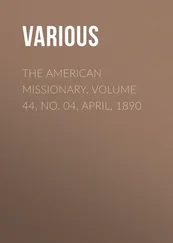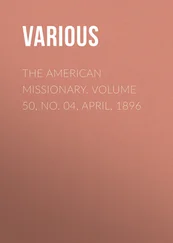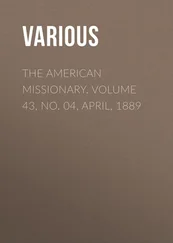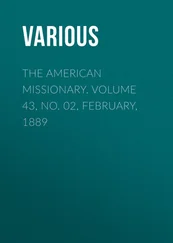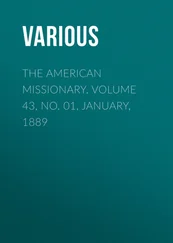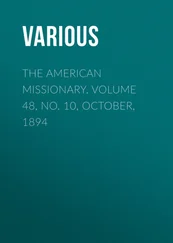Elizabeth Ellet - The Women of The American Revolution, Vol. 2
Здесь есть возможность читать онлайн «Elizabeth Ellet - The Women of The American Revolution, Vol. 2» — ознакомительный отрывок электронной книги совершенно бесплатно, а после прочтения отрывка купить полную версию. В некоторых случаях можно слушать аудио, скачать через торрент в формате fb2 и присутствует краткое содержание. Жанр: foreign_antique, foreign_prose, на английском языке. Описание произведения, (предисловие) а так же отзывы посетителей доступны на портале библиотеки ЛибКат.
- Название:The Women of The American Revolution, Vol. 2
- Автор:
- Жанр:
- Год:неизвестен
- ISBN:нет данных
- Рейтинг книги:5 / 5. Голосов: 1
-
Избранное:Добавить в избранное
- Отзывы:
-
Ваша оценка:
- 100
- 1
- 2
- 3
- 4
- 5
The Women of The American Revolution, Vol. 2: краткое содержание, описание и аннотация
Предлагаем к чтению аннотацию, описание, краткое содержание или предисловие (зависит от того, что написал сам автор книги «The Women of The American Revolution, Vol. 2»). Если вы не нашли необходимую информацию о книге — напишите в комментариях, мы постараемся отыскать её.
The Women of The American Revolution, Vol. 2 — читать онлайн ознакомительный отрывок
Ниже представлен текст книги, разбитый по страницам. Система сохранения места последней прочитанной страницы, позволяет с удобством читать онлайн бесплатно книгу «The Women of The American Revolution, Vol. 2», без необходимости каждый раз заново искать на чём Вы остановились. Поставьте закладку, и сможете в любой момент перейти на страницу, на которой закончили чтение.
Интервал:
Закладка:
When Mr. Adams, having returned with his family to the United States, became Vice President, his wife appeared, as in other situations – the pure-hearted patriot – the accomplished woman – the worthy partner of his cares and honors. He was called to the Presidency, and the widest field was opened for the exercise of her talents. Her letter written on the day that decided the people's choice, shows a sense of the solemn responsibility he had assumed, with a spirit of reliance upon Divine guidance, and forgetfulness of all thoughts of pride in higher sentiments – honorable to the heart of a Daughter of America. Well might the husband thus addressed bear the testimony he does in one of his letters, in the midst of the perils of war: "A soul as pure, as benevolent, as virtuous, and pious as yours, has nothing to fear, but every thing to hope and expect from the last of human evils."
In her elevated position, the grace and elegance of Mrs. Adams, with her charms of conversation, were rendered more attractive by her frank sincerity. Her close observation, discrimination of character, and clear judgment, gave her an influence which failed not to be acknowledged. Her husband ever appreciated her worth, and was sustained in spirit by her buoyant cheerfulness and affectionate sympathy, in the multiplicity of his cares and labors. It was hers, too, to disarm the demon of party spirit, to calm agitations, heal the rankling wounds of pride, and pluck the root of bitterness away.
After the retirement of her husband, Mrs. Adams continued to take a deep interest in public affairs, and communicated to her friends her opinions both of men and measures. Writing to Mrs. Warren, March 9th, 1807, she says: "If we were to count our years by the revolutions we have witnessed, we might number them with the Antediluvians. So rapid have been the changes that the mind, though fleet in its progress, has been outstripped by them, and we are left like statues gazing at what we can neither fathom nor comprehend. You inquire, what does Mr. Adams think of Napoleon? If you had asked Mrs. Adams, she would have replied to you in the words of Pope,
'If plagues and earthquakes break not heaven's design,
Why then a Borgia or a Napoline?'"
Her health was much impaired; and from this time she remained in her rural seclusion at Quincy. With faculties unimpaired in old age, her serenity and benign cheerfulness continued to the last; the shadows of a life full of changes never deepened into gloom; she was still a minister of blessing to all within her influence, and in the settled calm of Christian contentment awaited the change that was to terminate her connection with the things of earth. To this she was summoned on the twenty-eighth of October, 1818.
Her character is a worthy subject of contemplation for her countrywomen. With intellectual gifts of the highest order she combined sensibility, tact, and much practical knowledge of life. Thus was she qualified for eminent usefulness in her distinguished position as the companion of one great statesman, and the guide of another. Few may rise to such pre-eminence; but many can emulate the firmness that sustained her in all vicissitudes, and can imitate her Christian virtues. These are pictured in her Letters, the publication of which was the first attempt to give tradition a palpable form, by laying open the thoughts and feelings of one who had borne an important part in our nation's early history.
The mother of Abigail Adams, it is said, took her last illness from a soldier who had served in her daughter's family, and whom she visited at Braintree, he having returned sick from the army.
She was the daughter of the Hon. John Quincy, of Braintree, and died in 1775, at the age of fifty-three. Without the least tincture of what is called pride of family, she possessed a true dignity of character, with great kindness of heart; and her efforts to relieve those in need extended to all objects of distress within her reach. Prudent and industrious in her own domestic management, she was attentive to provide employment for her poor neighbors; and was mild, frank and friendly in her intercourse with the parishioners, who regarded her with unbounded esteem and affection.
Another of her three celebrated daughters – Elizabeth – was remarkable in character and influence. She was born in 1750, and married the Rev. John Shaw of Haverhill. Her second husband was the Rev. Stephen Peabody, of Atkinson. Like her sister, she possessed superior powers of conversation, with a fine person, and polished and courtly manners. Her reading was extensive, and when speaking to youthful listeners on some improving topic, she would frequently recite passages from Shakespeare, Dryden, and the other English poets. Attentive to her domestic duties, and economical from Christian principle, to purity of heart and highly cultivated intellectual powers she united the most winning feminine grace. Her house at Haverhill was the centre of an elegant little circle of society for many years after the Revolution, and resorted to by the most cultivated residents of Boston and its vicinity. In Atkinson her gentle and friendly deportment won the lasting regard of the parishioners. She loved to instruct the ignorant, feed the poor, and comfort the afflicted; and the young were particularly the objects of her solicitude. Thus dispensing light and joy wherever she moved, she passed a useful, and therefore a happy life, which terminated at the age of sixty-six.
Mrs. Peabody formed an early and enduring friendship with Mrs. Warren, for whose character and intellect her letters express the highest respect.
Her correspondence contains frequent remarks upon the prospects of the country, and the movements of the army. "Lost to virtue," she says to John Adams – "lost to humanity must that person be, who can view without emotion the complicated distress of this injured land. Evil tidings molest our habitations, and wound our peace. Oh, my brother! oppression is enough to make a wise people mad."
On her road to Plymouth to visit Mrs. Warren, her MS. journal mentions that she stopped at the house of Dr. Hall, where she dined on salt bacon and eggs. Three of the daughters were grown, and appeared sensible as well as pretty. "But," she says, "in order to discover whether their sensibility reached further than their faces, I sat down after dinner, while they were quilting a very nice homespun bedquilt, and read in a book I had brought with me several detached pieces – "Virtue and Constancy rewarded," "Zulima the Coquette, etc." This little memorandum throws light not only on the writer's character, but the manners of the time. The result appeared satisfactory; the young ladies being so well pleased with the reading that they begged their visitor to continue it.
The eldest daughter, Mary, was married in 1762, to Richard Cranch, afterwards Judge of the Court of Common Pleas in Massachusetts. In 1775, the family removed from Boston to Quincy, then a part of Braintree, where they continued to reside till 1811. In October of that year both Mr. and Mrs. Cranch died, and were buried on the same day. The life of Mrs. Cranch was spent in deeds of charity and kindness. She was remarkable for her cheerfulness and fortitude, with earnestness in the discharge of her Christian duties. The Hon. Judge William Cranch, of Washington, is her son.
In those portions of the country which were, at different periods, the scene of military operations, the energy, heroism, and magnanimity of woman were called by necessity into continual exercise. But there were other women whose more homely heroism was not without its effect; whose unacknowledged influence extended widely into the future. Their sphere of action limited to the bosom of their own families, the influence wrought quietly and unmarked, yet sent forth an impulse and an energy, like the life-blood propelled from the heart, through our whole national system. The mothers, who through years of adverse fortune were true to American principles, and who kept them pure in their homes in the season of prosperity, although no brilliant acts illustrate their simple history, rendered real service to the country. Their duties during the war, or after the return of peace, were fulfilled in a spirit of self-sacrifice, without the wish or expectation of reward. The noblest reward, however, was theirs; the sons in whose minds they had nursed the germs of patriotism and virtue, rose up to call them blessed.
Читать дальшеИнтервал:
Закладка:
Похожие книги на «The Women of The American Revolution, Vol. 2»
Представляем Вашему вниманию похожие книги на «The Women of The American Revolution, Vol. 2» списком для выбора. Мы отобрали схожую по названию и смыслу литературу в надежде предоставить читателям больше вариантов отыскать новые, интересные, ещё непрочитанные произведения.
Обсуждение, отзывы о книге «The Women of The American Revolution, Vol. 2» и просто собственные мнения читателей. Оставьте ваши комментарии, напишите, что Вы думаете о произведении, его смысле или главных героях. Укажите что конкретно понравилось, а что нет, и почему Вы так считаете.




